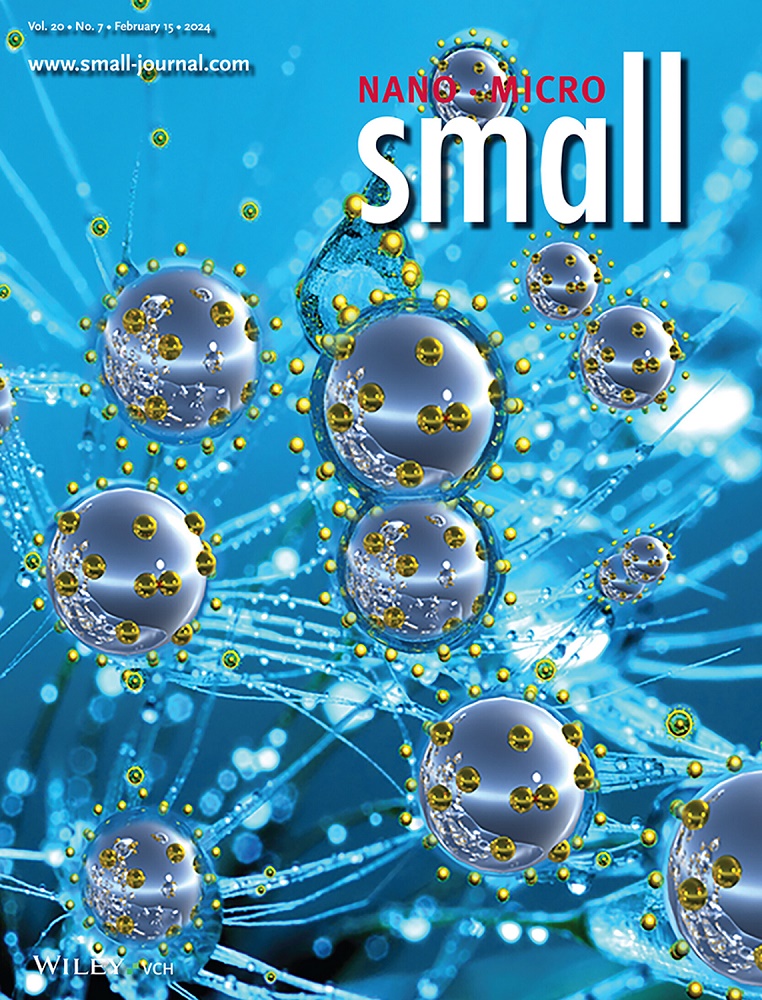Flexible Field-Effect Transistor Sensors for Next-Generation Health Monitoring: Materials to Advanced Applications.
IF 13
2区 材料科学
Q1 CHEMISTRY, MULTIDISCIPLINARY
引用次数: 0
Abstract
Flexible field-effect transistor (FET) sensors have emerged as a promising technology for human health monitoring, driven by breakthroughs in materials, device design, and fabrication processes. Their unique advantages, including multi-parametric detection, intrinsic signal amplification, low power consumption, and scalable production, position them at the forefront of wearable and implantable biosensing systems. This review outlines the structural design and operational principles of flexible FET sensors, systematically summarizing material innovations for critical components (substrates, dielectrics, semiconductor channels, and electrodes) and strategies to harmonize electrical performance with mechanical robustness. It analyzes evaluation methods and optimization strategies for enhancing mechanical stability under repetitive strain, a pivotal challenge for practical deployment. Additionally, it highlights cutting-edge applications in physiological signal monitoring and biological fluid analysis, demonstrating their potential for real-time diagnostics. Finally, the review discusses the current limitations of flexible FET sensors and provides an outlook on their future opportunities in personalized health management, intelligent diagnostic systems, and next-generation medical technologies.用于下一代健康监测的柔性场效应晶体管传感器:材料的高级应用。
柔性场效应晶体管(FET)传感器在材料、器件设计和制造工艺的突破推动下,已成为一种很有前途的人类健康监测技术。其独特的优势,包括多参数检测,固有信号放大,低功耗和可扩展的生产,使其处于可穿戴和植入式生物传感系统的前沿。本文概述了柔性场效应管传感器的结构设计和工作原理,系统地总结了关键部件(衬底、电介质、半导体通道和电极)的材料创新,以及协调电气性能和机械稳健性的策略。分析了在重复应变下提高机械稳定性的评估方法和优化策略,这是实际部署的关键挑战。此外,它还强调了生理信号监测和生物流体分析方面的前沿应用,展示了它们在实时诊断方面的潜力。最后,本文讨论了柔性场效应晶体管传感器目前的局限性,并展望了它们在个性化健康管理、智能诊断系统和下一代医疗技术方面的未来机会。
本文章由计算机程序翻译,如有差异,请以英文原文为准。
求助全文
约1分钟内获得全文
求助全文
来源期刊

Small
工程技术-材料科学:综合
CiteScore
17.70
自引率
3.80%
发文量
1830
审稿时长
2.1 months
期刊介绍:
Small serves as an exceptional platform for both experimental and theoretical studies in fundamental and applied interdisciplinary research at the nano- and microscale. The journal offers a compelling mix of peer-reviewed Research Articles, Reviews, Perspectives, and Comments.
With a remarkable 2022 Journal Impact Factor of 13.3 (Journal Citation Reports from Clarivate Analytics, 2023), Small remains among the top multidisciplinary journals, covering a wide range of topics at the interface of materials science, chemistry, physics, engineering, medicine, and biology.
Small's readership includes biochemists, biologists, biomedical scientists, chemists, engineers, information technologists, materials scientists, physicists, and theoreticians alike.
 求助内容:
求助内容: 应助结果提醒方式:
应助结果提醒方式:


